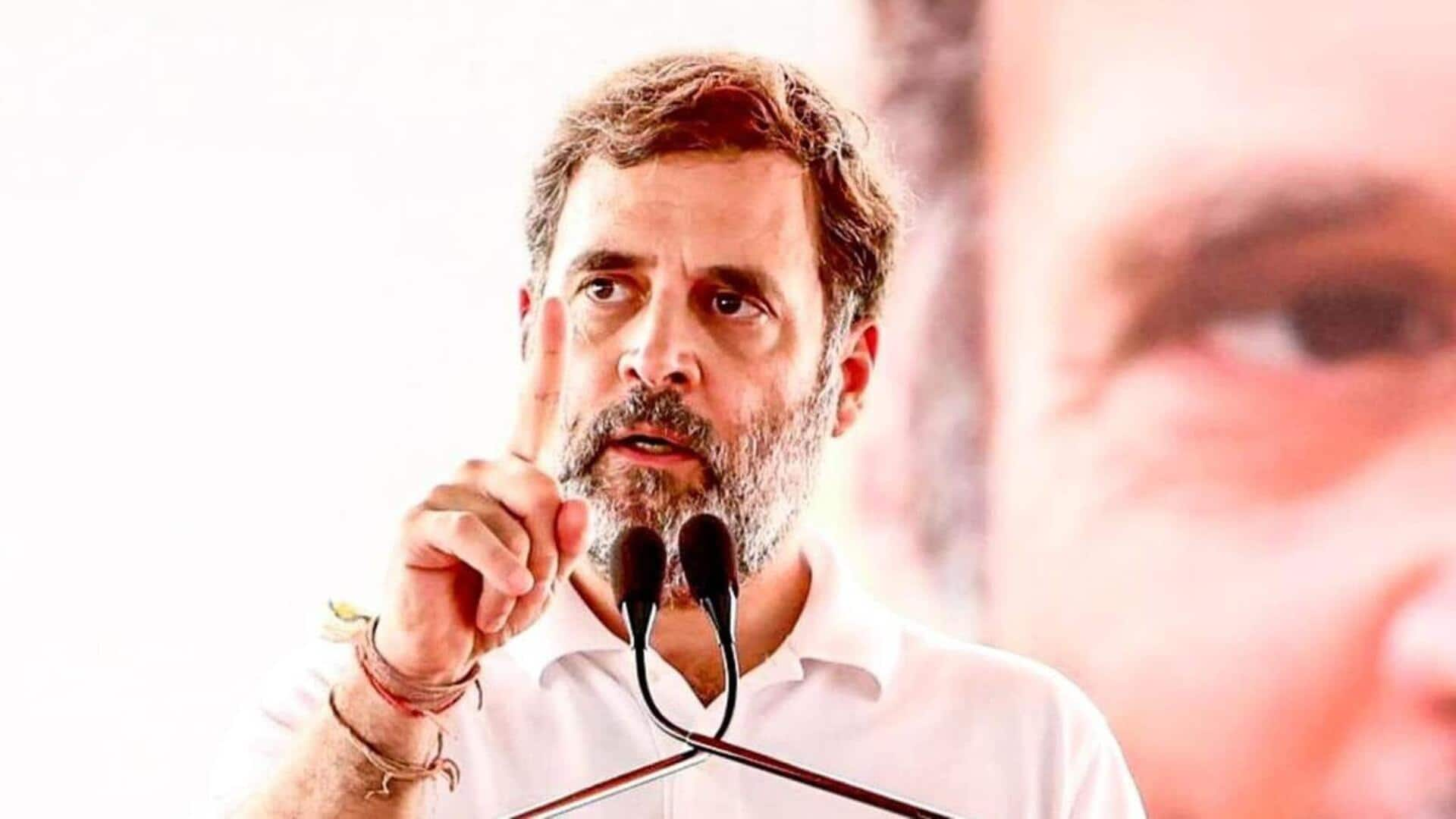
Explained: What's the controversy surrounding Rahul Gandhi's citizenship
What's the story
The Allahabad High Court has asked the central government to take a decision on a petition that alleges that Congress leader Rahul Gandhi has British citizenship.
The court has given the government time till December 19 to take a decision.
The petition, filed by Karnataka Bharatiya Janata Party (BJP) worker S Vignesh Shishir, accuses Gandhi of hiding his British citizenship during his parliamentary election campaign from Raebareli earlier this year.
Legal action
Petitioner seeks CBI investigation into Gandhi's alleged dual citizenship
Shishir has also demanded a Central Bureau of Investigation (CBI) probe into the matter, contending that Gandhi's alleged dual citizenship violates Indian laws, including the Bharatiya Nyaya Sanhita and the Passport Act.
The petitioner claims to have documents and emails from the British government that prove his allegations about Gandhi's British citizenship.
This legal action comes after Shishir submitted two representations to the Home Ministry about Gandhi's alleged dual citizenship but received no response.
Case history
Previous case and concerns over 'parallel proceedings'
This petition follows a similar case heard by the Delhi High Court in 2019.
In this case, Bharatiya Janata Party (BJP) leader Subramanian Swamy had alleged that Gandhi couldn't hold British and Indian citizenship.
Acting on Swamy's complaint, the Home Ministry issued a notice to Gandhi but was later accused of inaction by Swamy, who sought updates from the Delhi HC.
On November 6, Shishir raised concerns of "parallel proceedings" in multiple courts during a hearing at the Delhi HC.
Court's concern
Delhi HC's stance on 'parallel proceedings'
A bench of Chief Justice Manmohan and Justice Tushar Rao Gedela expressed concerns that adjudicating the petition could result in "two parallel proceedings" on the same topics.
The bench observed that the prayers in Shishir's Allahabad petition were wide and covered similar issues as Swamy's case.
However, Swamy contended that his case was only about establishing Gandhi's British citizenship, while Shishir's petition sought criminal action against Gandhi for allegedly violating Indian laws.
Citizenship law
India's stance on dual citizenship
India doesn't allow dual citizenship.
An Indian citizen cannot be a citizen of another country.
Although the Overseas Citizenship of India (OCI) program grants certain privileges, those with an OCI card cannot vote, contest elections, or hold constitutional posts like the president, vice president, or judges of the Supreme Court or high courts.